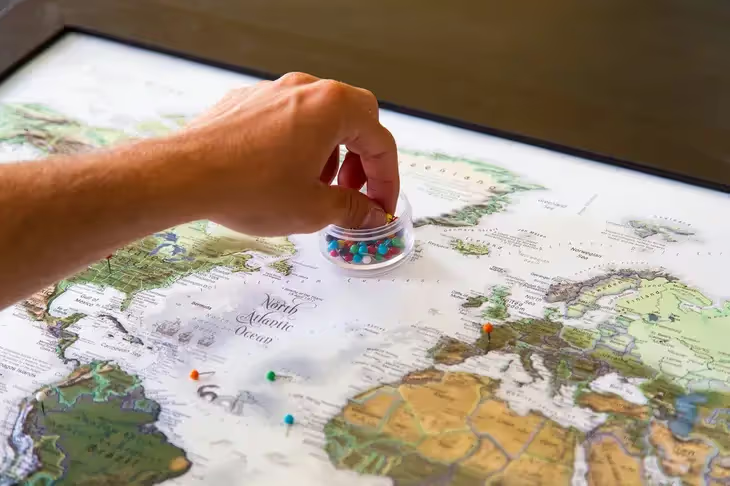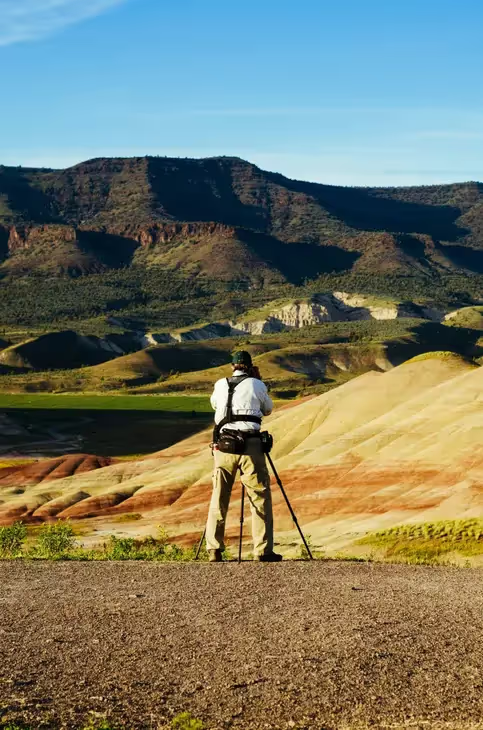


Ultimate Medical Academy
For nearly 30 years, UMA has helped students build rewarding healthcare careers. With personalized support from day one to graduation, you’ll stay on track to reach your goals.



South University



Post University (Online)

As you embark on your journey to pursue higher education and realize your career aspirations, you might have considered a path in Geography and Cartography. This unique discipline combines the study of our naturally occurring and human-made surroundings on Earth and the craft of graphically representing these features on maps. It's an ideal field for those of you with a fervor for understanding the world's complexities and a knack for data analysis and visualization. Your pursuit of studying geography and mapmaking could potentially reshape the way we understand our world, solve real-world problems, and inform policy and planning decisions. We're here to guide you every step of the way, providing factual, reliable, and motivational information to help you make the best decisions for your educational journey.
By choosing to study a program in Geography and Cartography, you're setting yourself up to explore the world around you in greater detail. With this degree, you'll cultivate a deep understanding of earth's many complex physical and sociocultural patterns. It's not just about reading maps - though that's a big part of it. This program trains you to analyze spatial data, interpret simulations, predict future geographical happenings, and more. There's a vast range of careers you can pursue upon graduation from this fascinating field of study.


Embarking on a program in Geography and Cartography, you're set to glean comprehensive knowledge in physical landscapes, human interaction with the environment, theory and technology of map making. This highly engaging and interactive area of study provides a solid foundation for a multitude of career paths. You would not only enrich your respect for and understanding of our planet, but also build tangible skills in spatial analysis, technology application, and environmental awareness.
To start a higher education program in Geography & Cartography, having prior experience or a strong understanding in certain areas can greatly benefit your educational journey. You should ideally possess basic knowledge of geographic principles and processes. An understanding of physical and human geography along with Geographic Information Systems (GIS) can be a strong asset. On the cartography side, some experience in drafting, design, or computer-aided drawing can facilitate your comprehension of map-making processes. Furthermore, good analytical skills will help you analyze spatial data effectively, while good communication skills will assist in representing geographic information clearly and compellingly to diverse audiences. So, if you aspire to step into the exciting world of geography and cartography, here are some areas you might want to gain some experience in:
Above all, remember that your passion for exploring our world and its various aspects is the most powerful tool you possess. So, engage with the subject matter, explore the world around you, and use your education to unlock new horizons.

If you're interested in geography and cartography, there are several career paths you can choose from after receiving your postgraduate degree. These careers allow you to use your specialized knowledge to analyze environmental conditions, create detailed maps, or study the relationship between location and culture. You can find employment in both the private and public sectors, including governmental agencies, educational institutions, and research organizations. As the world becomes increasingly interconnected through technology, professionals with a geography and cartography background are in strong demand to apply their technical and analytical skills.
According to the U.S. Bureau of Labor Statistics (BLS), the median annual wage for cartographers and photogrammetrists was $78,380 in May 2024.
You may find a multitude of jobs for postgraduates in the fields of Geography & Cartography. With a higher degree in these fields, you can venture into opportunities such as Geographic Information Systems (GIS) Analysts, Transportation Planners, Environmental Planners, Urban Planners, or even become a Cartographer. A GIS Analyst has the responsibility to create, analyze, and manage digital data using GIS software, helping to make wise decisions based on geographic information. If you have an interest in transportation systems, becoming a Transportation Planner allows you to work on infrastructure development. And for those passionate about environmental preservation, being an Environmental Planner is an excellent way to contribute to environmental causes and manage how construction projects impact the environment. Meanwhile, Urban Planners focus on community development, while Cartographers specialize in creating accurate and user-friendly maps using GIS data. Regardless of the path you choose, these careers offer fascinating ways to utilize your specialized knowledge. The earning potential varies greatly, with entry-level positions starting at around $45,000 yearly, though more experience and higher degrees can significantly increase that number.